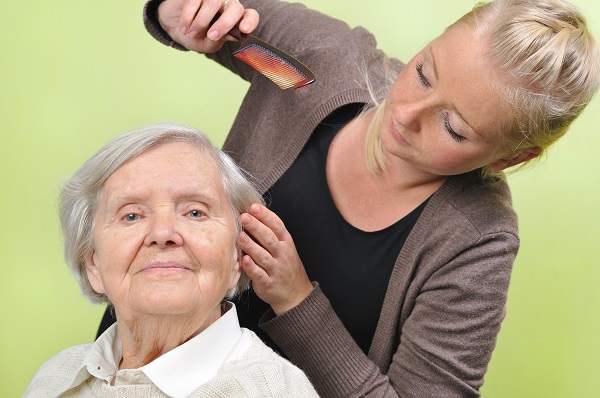
by Bill Miller | Feb 17, 2020 | Aging Parents, Blog, Caregivers, Long-Term Care
Whoever said, “Life at you fast” wasn’t joking. Our lives can be changed in the blink of an eye by an accident or other unpleasant surprise. However odd it may seem, it is possible to prepare for an unexpected emergency. In some cases, that means have a good estate plan in place before the emergency.
Sometimes a loved one may need sudden medical attention.
A complete estate plan typically includes an advance directive for health care. This document may include a durable power of attorney and a living Will. If you suddenly become ill and unable to communicate with your doctors, your advance directive will be a big help to your family and your healthcare providers. Your power of attorney has named an agent to communicate for you. A living will states your preferences for end-of-life treatment.
Emergencies can involve incapacity or disability.
If you are disabled due to a medical emergency, your advance directive helps with medical decisions. However, financial matters must be attended to also. This is where your general durable power of attorney makes a difference. The agent you named in your durable power of attorney can step in and take over your financial affairs if you are no longer able to do so.
You may also have set up a revocable living trust, naming yourself as trustee. In the event of your incapacity, the successor trustee can take over management of the trust.
In addition, you may have engaged in other incapacity planning that may help you qualify for government benefits like Medicaid.
One worst case scenario may include moving a beloved family member to a nursing facility.
Speaking of Medicaid, you or a loved one may need Medicaid to pay for long-term care costs. It’s important to start your Medicaid planning early because Medicaid will review your finances for the five years prior to applying for benefits. Some transactions made during that time frame could reduce or eliminate your eligibility.
Certain trusts can help you with long-term care planning. However, you will need to speak with an attorney to make sure your trust is established correctly.
An unexpected emergency may even lead to death.
Finally, death is often unexpected. Your valid Alabama Will or revocable living trust affect how your property will be passed to your heirs. Leaving these documents behind for your family helps them at a truly stressful time.
Estate planning can help when an unexpected emergency arises
Your estate plan can’t help, though, if it is out of date or you haven’t even prepared it yet. Schedule a consultation with one of the attorneys at Miller Estate and Elder Law. Our phone number is 256-472-1900. Miller Estate and Elder Law is now located at 818 Leighton Avenue in Anniston, but we serve clients in communities like Hoover, Vestavia Hills, Irondale, and Calera.
Check out our website for information about free workshops and guides.

by Bill Miller | Oct 12, 2018 | Caregivers, Elder Law
Louise provided in-home services for an elderly couple, Leonard and Amelia. Five days a week, she helped the couple bathe and dress, cooked, did some light housekeeping, and helped manage their prescriptions. Louise felt that most of the couple’s medical needs were being met. As a caregiver, she did have some legal concerns about her patients.
The General Durable Power of Attorney
Caregivers may closely watch their clients’ medical conditions. They may see their patients gradually deteriorate to the point of incapacity. Before this happens, a caregiver may suggest the patient sign a general durable power of attorney.
This document gives the patient the opportunity to plan ahead for his or her financial affairs. The principal – the person signing the power of attorney – can name a trusted person to make financial decisions and pay bills. As long as the power of attorney is ‘durable’ the authority granted continues even if the principal becomes incapacitated.
Patient Needs a Health Care Power of Attorney
A caregiver understands the important of having an advanced directive or health care power of attorney. Like a general durable power of attorney, the person signing the document names a trusted person to make decisions for them. In this document, however, the agent is given authority over medical decisions.
Patient Needs to Apply for Government Assistance
Sometimes patients need long-term care. The caregiver may realize that the patient would benefit from government programs like Medicaid and VA benefits. There’s even a Medicaid program designed for family caregivers.
Navigating government benefit programs can be difficult and frustrating. It helps to have someone on your side.
Patient Needs to Hire an Attorney
Which brings us to getting someone who can help with the other three concerns: a lawyer. A caregiver may see a need for a patient to consult with an attorney. One thing to be careful of, however, is to avoid any appearance of undue influence over the patient.
The attorneys at Miller Estate and Elder Law efficiently assist their clients with their estate planning, Medicaid applications, and probate. For a free consultation, contact us at 256-251-2137 or use our convenient Contact Form. Although we’re located in Anniston, we also help clients in the Birmingham, Gadsden, Hoover, Talladega, Vestavia Hills, and surrounding areas.

by Bill Miller | Jun 8, 2018 | Caregivers, Elder Law, Nursing Home, Special Needs
Calvin was becoming more frail every day. Daisy, his wife of 52 years, was finding it difficult to help him with his daily living activities. After several trips to the emergency room, Calvin’s doctor told them that he needed in-home nursing care. Daisy was left wondering, “What now?”
Locating the Right Caregivers
If you find yourself in this situation, the first thing to do is to find out exactly what kind of care your spouse needs. This will help you locate the right care and apply for the appropriate benefits.
For example, will your spouse need help only with activities of daily living like bathing and dressing? Or will he or she need a home health aide for skilled nursing care like taking vital signs and assisting with medication? Home caregivers may be hired through an agency or by private means while skilled health care workers are typically hired only through an agency.
Once you know what activities your in-home nursing staff will be responsible for, you can start looking for a caregiver that offers the assistance you need.
Paying for In-Home Nursing Care
In-home care is less expensive than long-term residential care, but it can still be out of reach for many people. As with long-term care, there are three basic ways to pay for in-home care:
- Self-pay. Even in-home care costs may quickly deplete your savings.
- Long-term Care Insurance. Benefits could help pay for both in-home and institutional care. Like all insurance, you have to apply and be approved. It’s likely that someone in Calvin’s position would be ineligible or would have extremely high premiums.
- Government Benefits. VA benefits might be available if you or your spouse served in the armed forces. Medicare might cover limited in-home care for a short period of time, but it’s not an option for the long haul. Medicaid does cover skilled care and assistance with daily activities.
Pre-Planning Is Best.
No one wants to think they may need in-home care, but it happens. Plan ahead with comprehensive estate planning, Medicaid eligibility planning, and purchasing insurance when possible.
The attorneys at Miller Estate and Elder Law have the experience and training to handle your concerns. Contact Miller Estate and Elder Law at 256-251-2137 to schedule an appointment. We help clients in Anniston, Talladega, Birmingham, Gadsden and surrounding communities.

by Bill Miller | Apr 7, 2018 | Caregivers
Leaving your loved one’s care in the hands of a stranger is frightening. Even if you do background checks, hire from reputable agencies, or find a nursing home with good reviews, you may still be concerned. When you are looking for a caregiver, or evaluating a current one, it’s helpful to know exactly what qualities to look for.
Qualities to Look for in a Caregiver Related to Temperament:
Some traits of a good caregiver relate to their disposition. Specifically:
- Empathy and Concern. Does your caregiver listen to what your loved one says? More importantly, do they care what their patient wants and needs? A good caregiver feels what the patient feels, but puts that aside to get the job done.
- Patience. Taking care of another person is hard. A good caregiver needs to have an abundance of patience.
- Trustworthy and Dependable. Your loved one needs someone who can be depended on to be there when needed. If you are hiring someone to care for your loved one at home, trustworthiness is important.
- Tough, Yet Flexible. Caregivers must be tough enough to get the job done, but flexible enough to roll with the inevitable changes. Medication and schedule changes should not derail your caregiver.
Qualities to Look for in a Caregiver Related to Behavior:
Some qualities are easier to determine than others:
- Communicates Well. When you interview a potential assistant, are they able to speak clearly and logically? A caregiver must be able to communicate freely and completely with medical care providers, patients, and family members.
- Attentive to Details. A nursing assistant needs to follow directions for care and especially for medications. Someone in a caregiver position who is unable to follow directions may need to be replaced in the best interests of your loved one’s safety.
- Strength. Patients often need help moving about and taking care of their daily activities. Caregivers must be physically strong enough to help the patients. Emotional strength is important when called upon to handle the stresses of caring for an elderly or seriously ill person.
Find an advocate for your loved one.
Finding the best care for your loved one may take time, but it’s certainly time well spent. Once you find a good caregiver, don’t forget to show appreciation.
Do you or a loved one need to speak with someone about planning for long-term care? Schedule an appointment with one of the qualified elder law attorneys at Miller Estate and Elder Law Our phone number 256-251-2137. Or you may choose to use our Contact Form to get started on your path to peace of mind.



